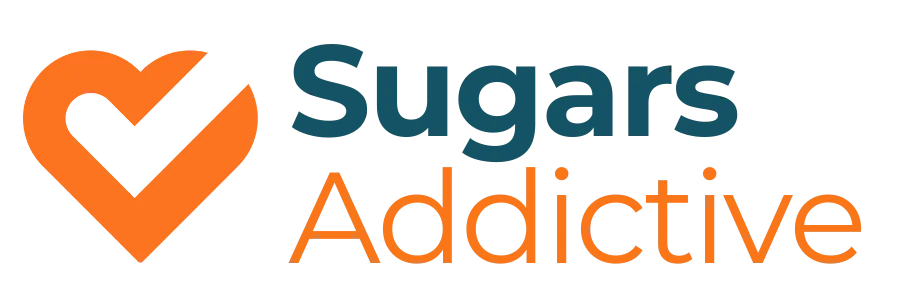In this blog post, we have shared the facts about how sugar impacts your health and body.
Sugar, the sweet crystalline substance that has become a staple in our diets, often hides behind the facade of sweetness, masking the bitter truths about its impacts on our health. This article unravels the sugar reality, exploring the detrimental effects of excessive sugar consumption on our bodies and overall health. What does sugar do to your body? Let’s dive into the unsweetened, bitter truth.
How sugar impacts your health and body ? (11 Key Points)
1. Unwanted Weight Gain
A prevalent and unwanted effect of consuming too much sugar is weight gain. Sugary foods and beverages, especially those high in fructose, are often high in calories but low in nutritional value. Regular consumption of these can lead to an increased caloric intake, causing a surge in body weight.
Fructose is especially notorious for its role in weight gain. Unlike glucose, which can be metabolised by all the body’s cells, fructose is primarily metabolised by the liver, where it is converted into fat. This process can lead to an accumulation of fat in the liver, promoting visceral fat gain around the abdomen. Visceral fat is associated with significant health issues, including heart disease and type 2 diabetes.
2. The Risk of Heart Disease
High-sugar diets have been linked to an increased risk of heart disease, the world’s leading cause of death. Consuming too much sugar can lead to obesity, inflammation, high triglyceride levels, diabetes, and high blood pressure, all risk factors for heart disease.
Studies show people who consume a high amount of added sugars, particularly in sugary beverages, are more likely to have poor heart health. In fact, a diet that gets 25% or more of its calories from added sugars doubles the risk of dying from heart disease compared to a diet where added sugars make up less than 10% of the calorie intake.
3. Acne Outbreaks
Sugar’s impact on your skin is not to be overlooked. Diets high in refined carbs, including sugary foods and drinks, can increase the risk of developing acne. Foods with a high glycemic index, such as processed sweets and sugary beverages, trigger a spike in insulin and blood sugar levels, leading to increased inflammation, oil production and hormonal fluctuations, all of which can contribute to acne formation.
Several studies show that low-glycemic diets are linked to a reduced acne risk, while high-glycemic diets are linked to a greater risk. Hence, for clear, healthy skin, it is advisable to reduce sugar intake.
4. Type 2 Diabetes Risk Factor
The worldwide prevalence of type 2 diabetes has increased dramatically in the past few decades, and sugar consumption plays a significant role in this global health crisis. While many factors contribute to the development of type 2 diabetes, there is a clear link between excessive sugar consumption, obesity, and the risk of developing this disease.
Insulin resistance, a key driver of type 2 diabetes, occurs when the cells become resistant to the effects of insulin, leading to higher blood sugar and insulin levels. Consuming excessive amounts of sugar, especially in sugary beverages, contributes to insulin resistance, paving the way for type 2 diabetes.
5. The Link to Cancer
The relationship between sugar intake and cancer is complex and influenced by several factors. However, it is clear that consuming excessive sugar can lead to obesity, inflammation and high insulin levels, all of which increase cancer risk.
Research shows that high-sugar diets can lead to obesity, which significantly raises the risk of cancer. Moreover, diets high in sugar increase inflammation in your body and could lead to insulin resistance, both of which increase cancer risk.
6. The Sugar-Depression Connection
Many studies have found a link between a diet high in sugar and a higher risk of depression. In one study, men who consumed a high-sugar diet had a 23% greater risk of developing a mental disorder after five years.
Excess sugar consumption can lead to inflammation, hormonal imbalance, and blood sugar fluctuations, all of which can impact mental health. Further research is needed to understand the complex relationship between sugar and mental health better, but reducing sugar intake is already a recommended strategy for improving mental wellbeing.
7. Accelerating Skin and Cellular Aging
Excessive sugar consumption can lead to premature ageing of the skin and cells21. Sugars in your diet can react with proteins and fats in an abnormal process called glycation, producing harmful compounds called advanced glycation end products (AGEs).
AGEs accumulate in your body as you age, and they are linked to ageing of your skin and cells. They can damage collagen and elastin, the protein fibres that keep your skin firm and youthful. The result is skin that is less firm and less elastic, leading to premature wrinkles and sagging.
8. The Impact on Dental Health
Sugar is the leading enemy of your dental health. Consuming too much sugar can lead to tooth decay and periodontal diseases. When you eat sugar, it interacts with bacteria in your mouth to form acid. This acid can erode tooth enamel, leading to cavities.
Sugar-rich diets provide the perfect environment for harmful oral bacteria to thrive, leading to gum inflammation, which can result in gum disease. Reducing your sugar intake can protect your teeth and gums, improving your oral health.
9. Sugar and Your Liver
Excessive consumption of sugar, especially fructose, can have severe consequences on your liver health. Fructose is metabolised in your liver. When too much fructose enters the liver, it can be converted into fat, leading to non-alcoholic fatty liver disease is a growing concern linked to the rise in sugar consumption. If left untreated, NAFLD can progress to more severe liver disease, including non-alcoholic steatohepatitis (NASH), cirrhosis, and liver cancer.
10. The Role of Sugar in Kidney Disease
High-sugar diets, particularly those high in fructose, can increase the risk of developing kidney disease. Fructose increases uric acid levels, which can lead to kidney damage and the formation of kidney stones.
Research shows that individuals who consume one or more sugary drinks per day have a higher risk of developing kidney disease. Therefore, reducing your sugar intake, particularly from sugary beverages, can help protect your kidneys.
11. How Does Sugar Fit into a Healthy Diet?
Sugar, particularly added sugars, can have detrimental effects on your health. However, it’s essential to remember that not all sugars are harmful to those who can moderate. Natural sugars, found in fruits, vegetables, and dairy, can form part of a healthy diet. These foods come packed with various essential nutrients, fibres, and antioxidants, which can be beneficial for your health.
An occasional treat won’t harm most people. However, it becomes a problem when high-sugar foods and drinks become a regular part of your diet. For those who can moderate, reducing your intake of added sugars by reading food labels, choosing whole foods over processed ones, and limiting your consumption of sugary beverages may significantly improve your health.
Indeed, for those who can moderate their intake, it’s not about removing sugar completely from your diet but about finding a healthy balance. Having a diet rich in whole grains, lean proteins, healthy fats, fruits, and vegetables can provide you with enough nutrients without the need for any added sugars.
12. Conclusion
In conclusion, while a little added sugar may work for some, for the addict, anything other than abstinence will likely result in cravings and significant health problems, including obesity, heart disease, diabetes, and poor oral health. By being aware of these harmful effects and taking proactive steps to focus on relapse prevention, together we can lead healthy lives. Let’s make a conscious effort to manage your overall sugar intake and embrace a healthier lifestyle.




